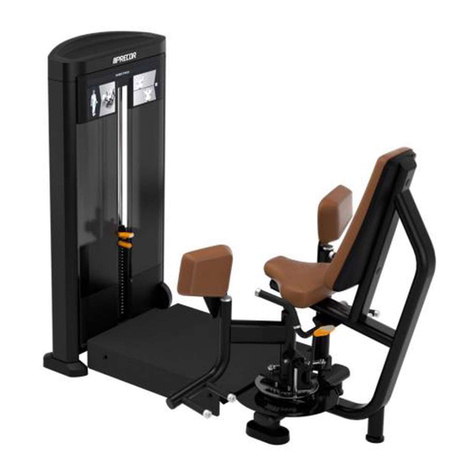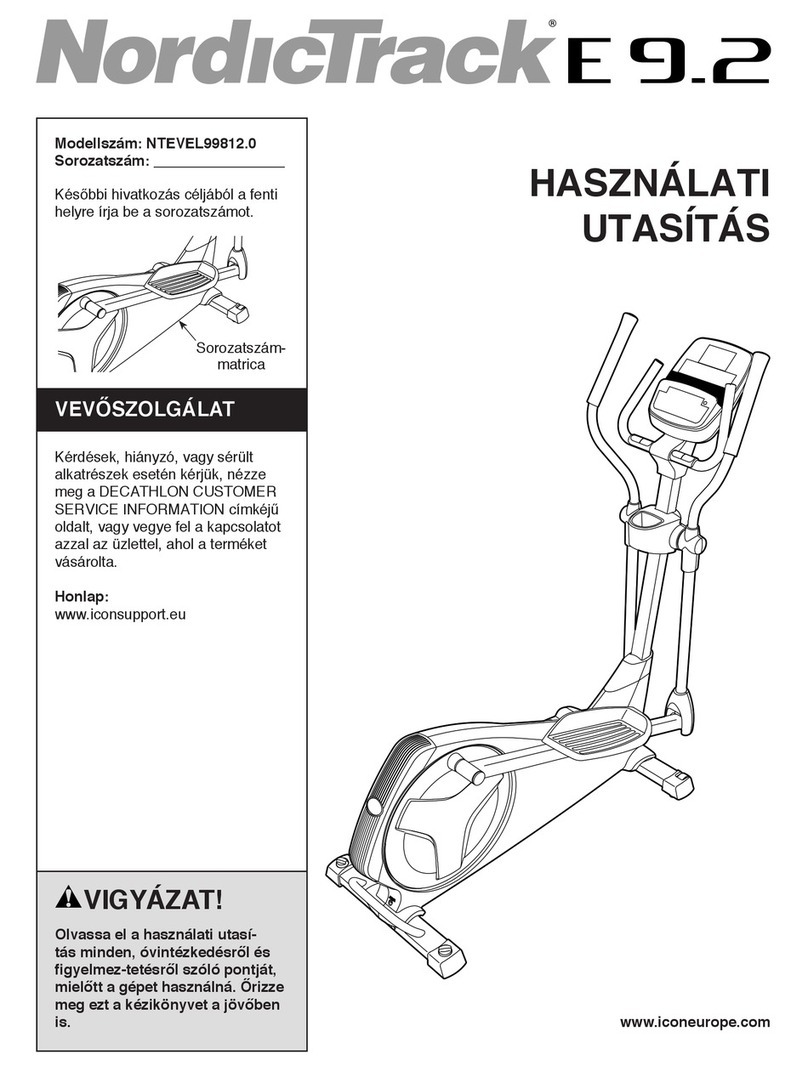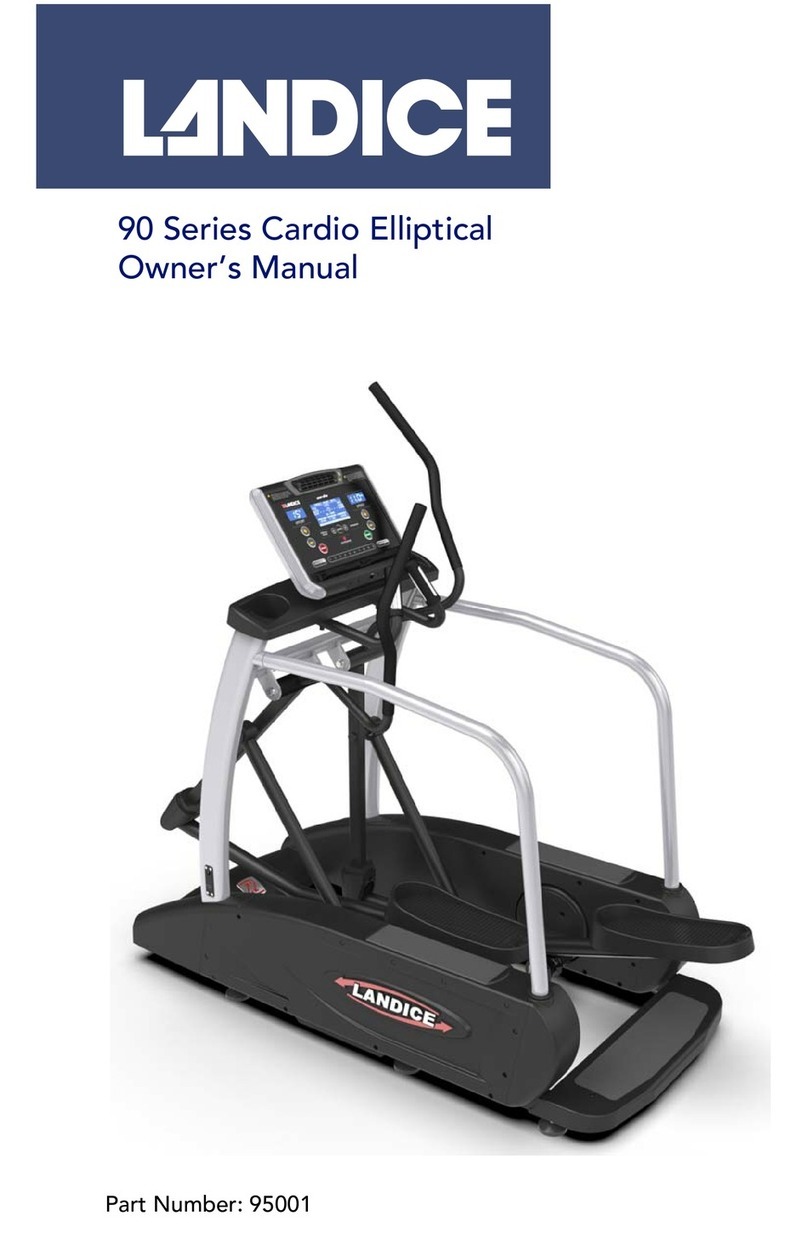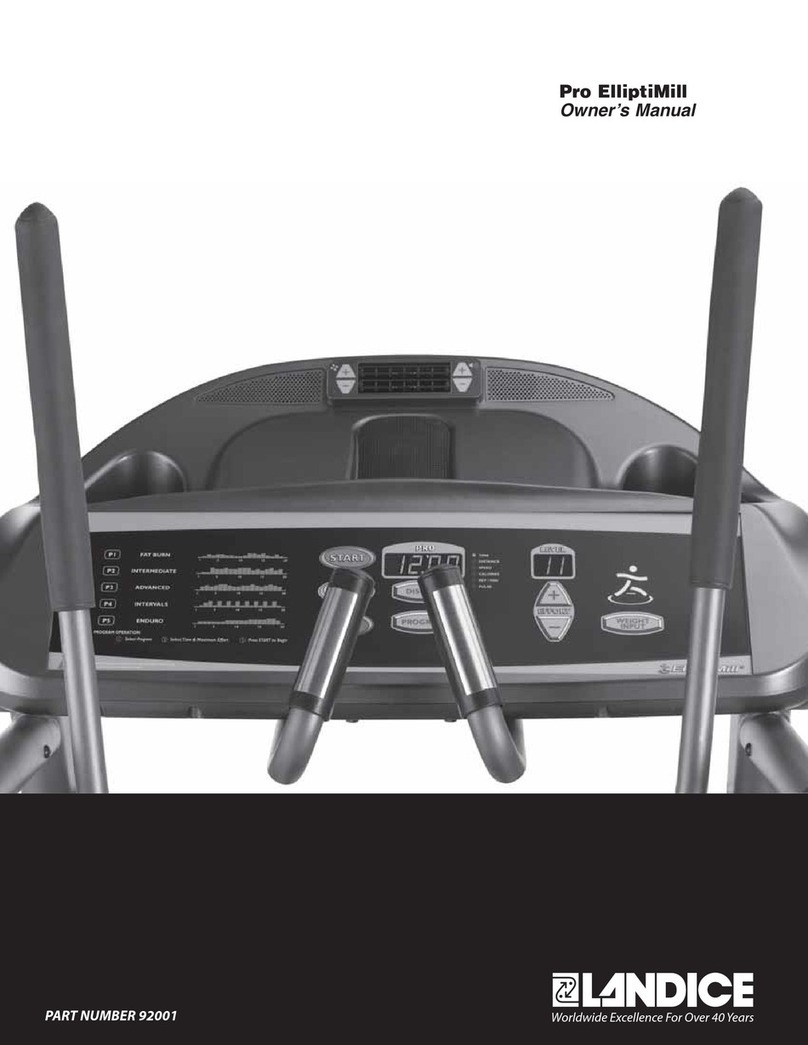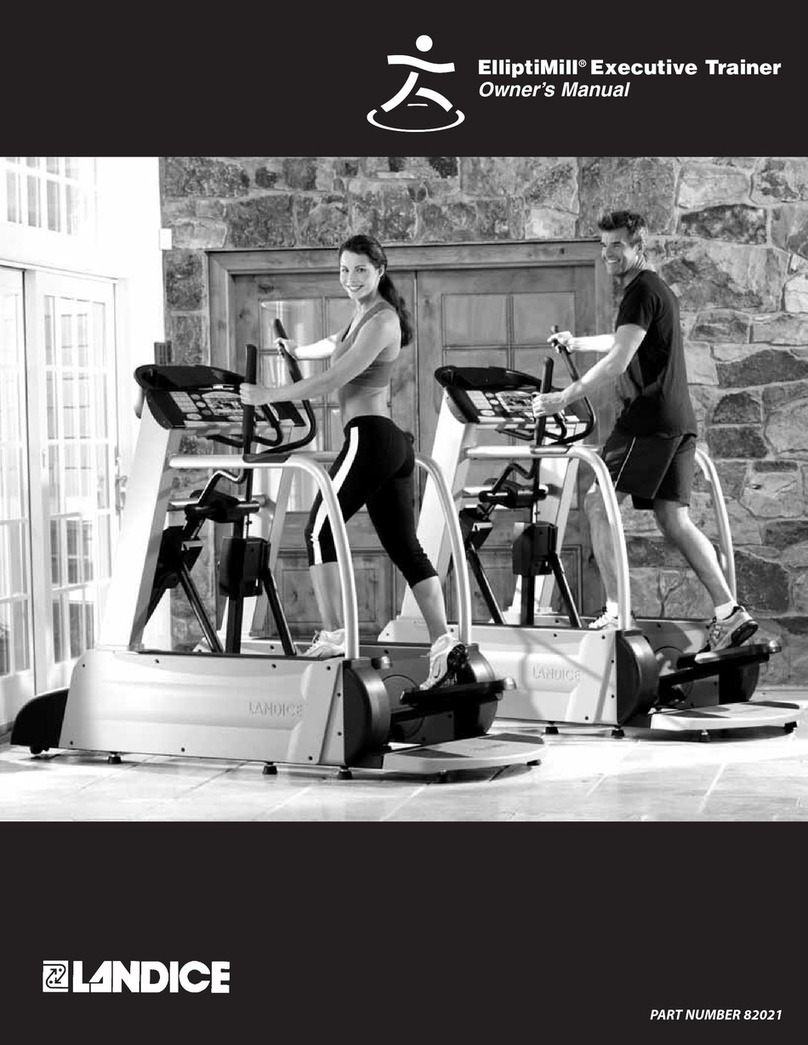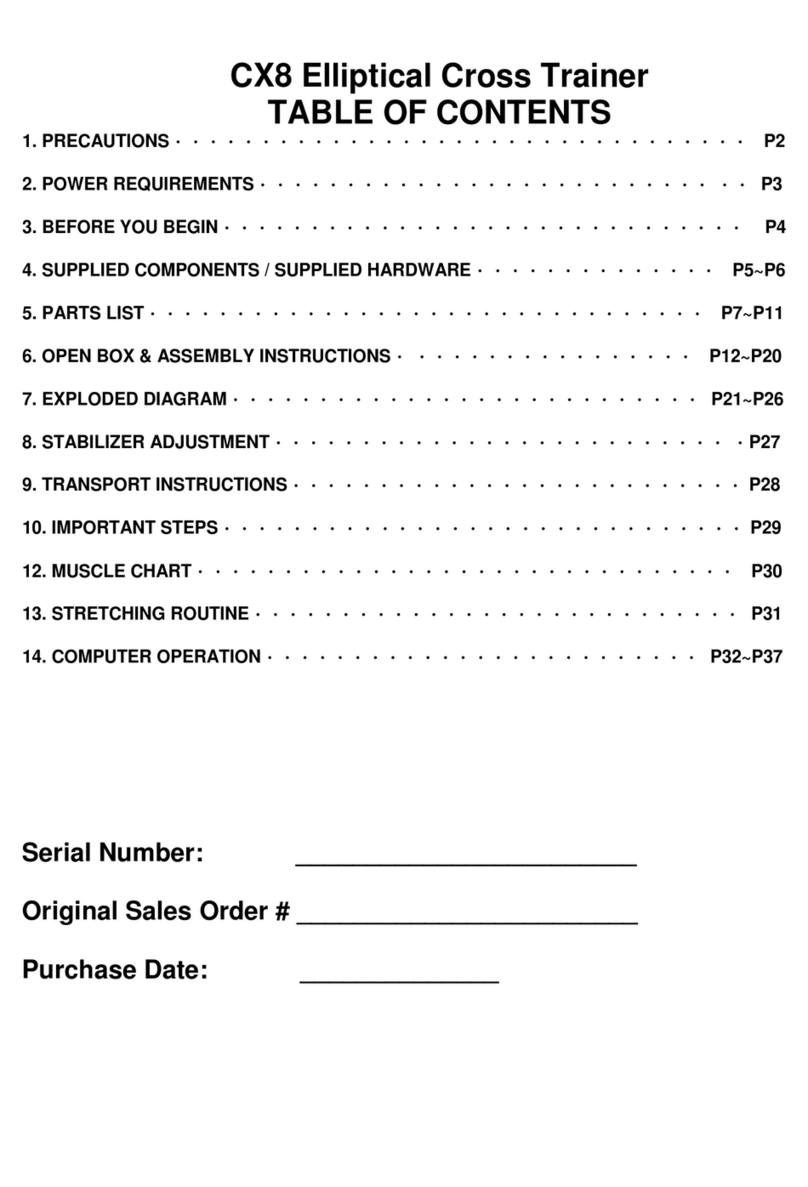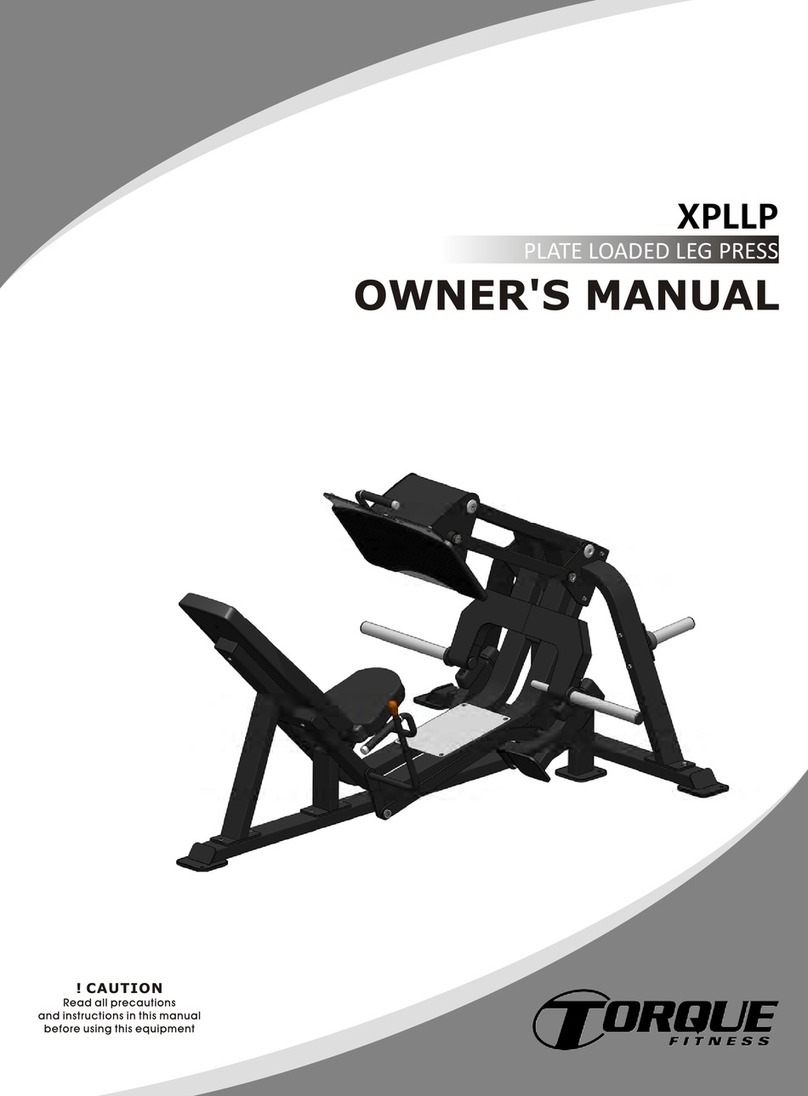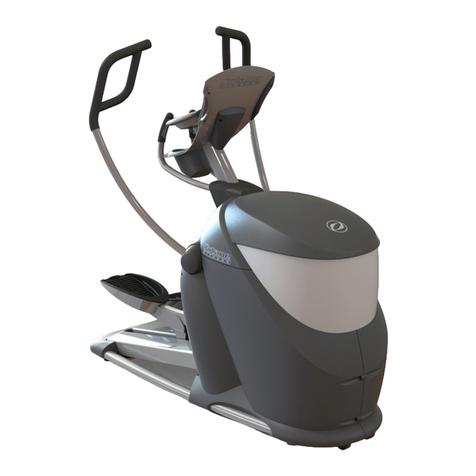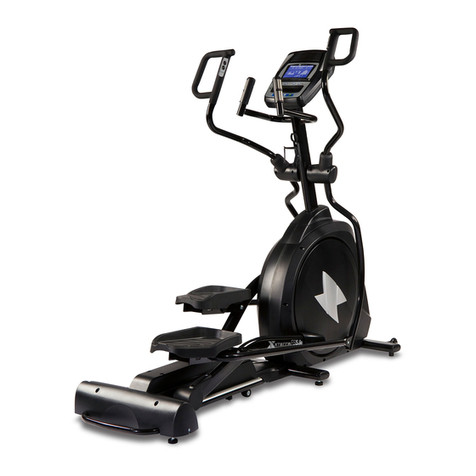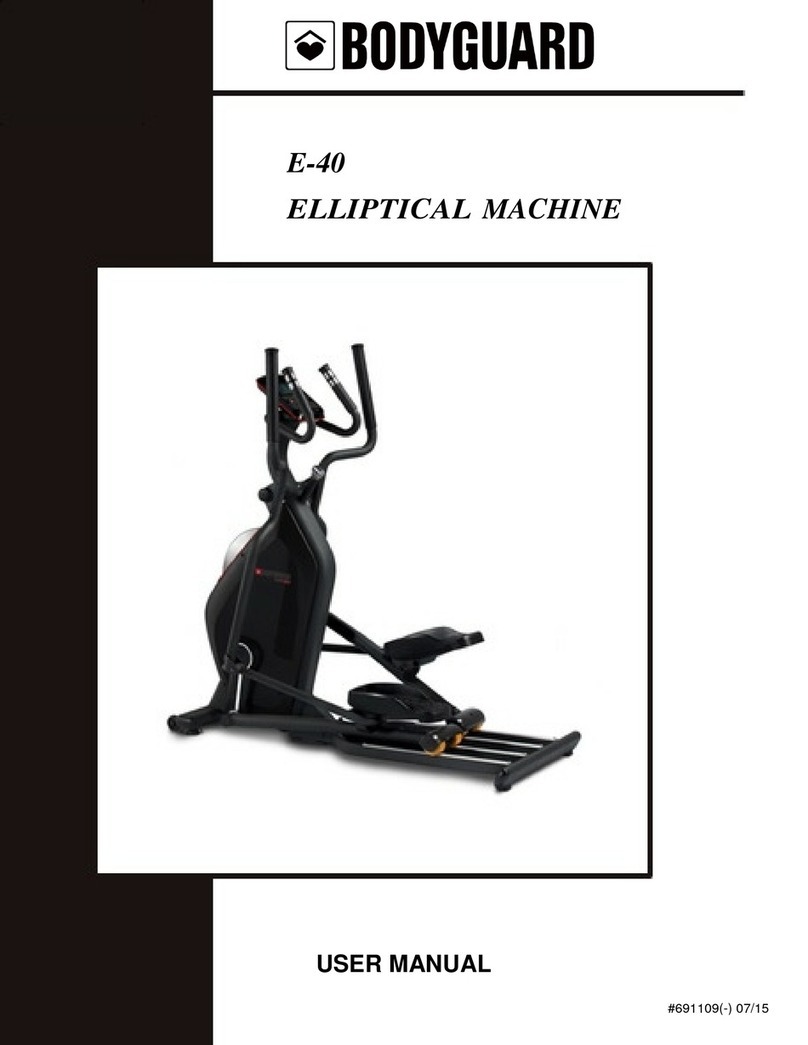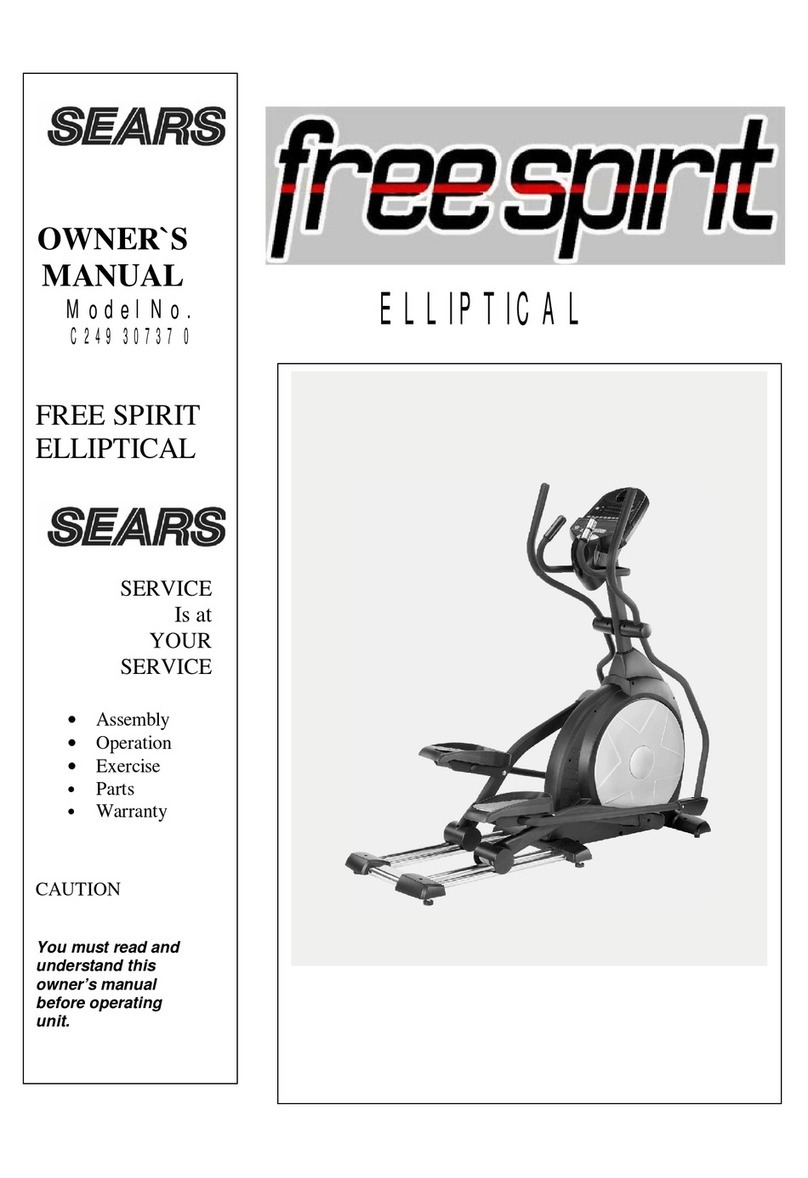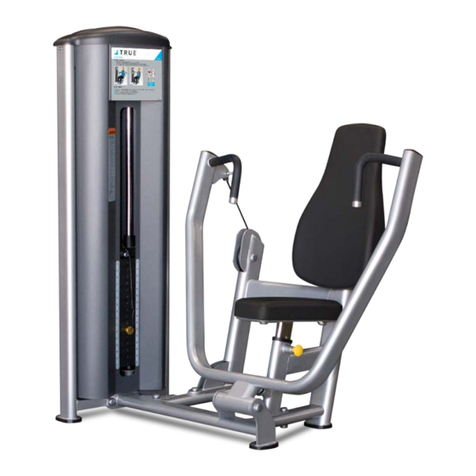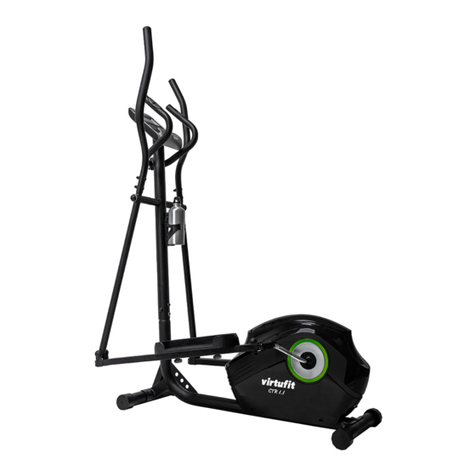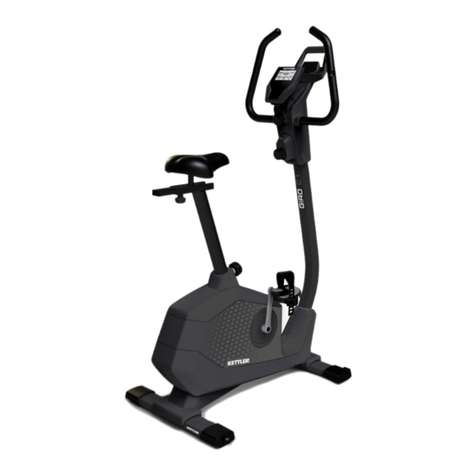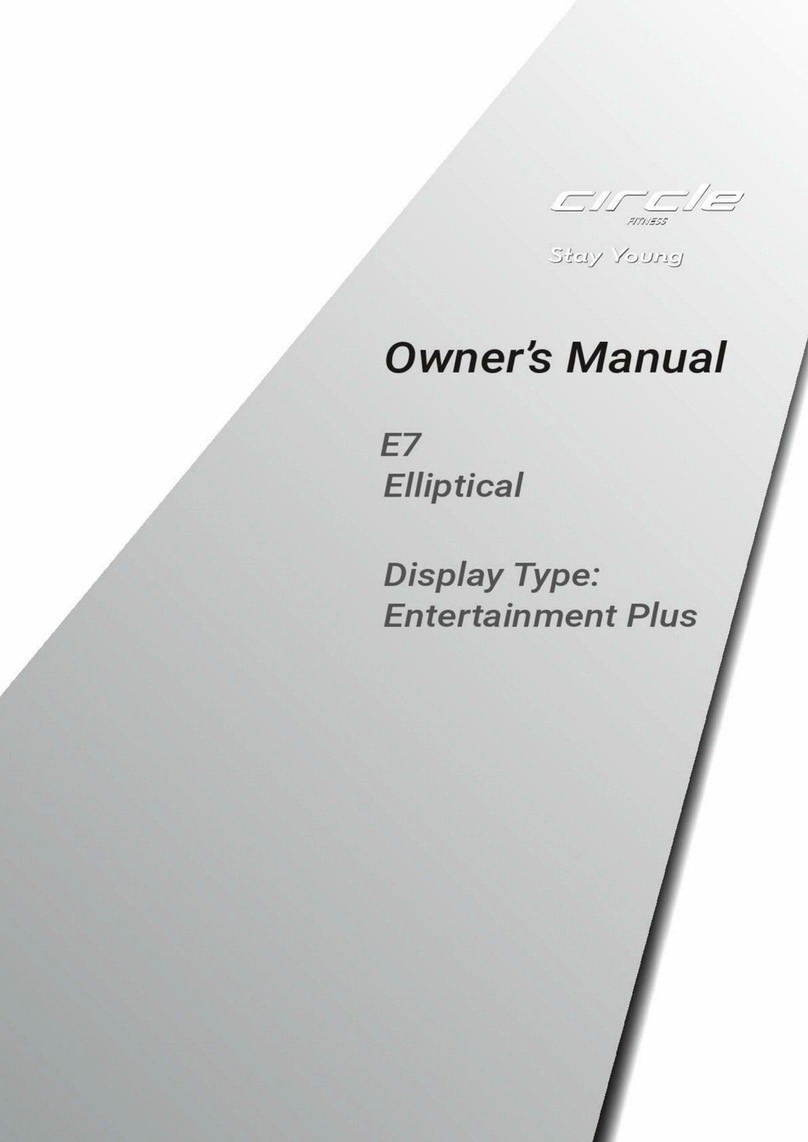
ii
[1] An appliance should never be left unattended when plugged in. Unplug from outlet when not in use.
[2] Close supervision is necessary when this unit is used by or near children or disabled persons.
[3] Use this elliptical only for its intended use as described in this manual.
[4] Never operate this elliptical if it has a damaged cord or plug, if it is not working properly, or if it has been damaged. Call your
selling dealer immediately for examination and repair.
[5] Keep the power cord away from heated surfaces. Be sure the line cord has plenty of slack and does not get pinched underneath
the elliptical.
[6] Never drop or insert any object into any opening. Be sure no objects are near or underneath the elliptical.
[7] Do not use outdoors.
[8] Do not operate where aerosol (spray) products are being used or where oxygen is being administered.
[9] Connect this appliance to a properly grounded dedicated outlet only.
[10] To disconnect, press the OFF button, and unplug the unit from the wall outlet.
GROUNDING INSTRUCTIONS
This product must be grounded. If it should malfunction or break down, grounding provides a path of least resistance for electric
current to reduce risk of electric shock. This product is equipped with a cord having an equipment grounding conductor and a
grounding plug. The plug must be plugged into an outlet that is properly installed and grounded in accordance with all local codes
and ordinances.
120 Volt EllIPtICAlS
Ellipticals marked 120 VAC are intended for use in a nominal 120-volt circuit with a grounding plug. Make sure the product is connected
to an outlet having the same configuration as the plug. No adapter should be used with this product.
200 - 250 Volt EllIPtICAlS
Ellipticals marked 200-250 VAC are intended for use on a circuit having a nominal rating more than 120V and are factory-equipped
with a specific cord and plug to permit connection to a proper electric circuit. Make sure the product is connected to an outlet having
the same configuration as the plug. No adapter should be used with this product. If the product must be reconnected for use on a
different type of electric circuit, qualified service personnel should make the reconnection.
DANGER: Improper connection of the equipment-grounding connector can result in a risk of electric shock. Check with a qualified
electrician or serviceman if you are in doubt as to whether the product is properly grounded. Do not modify the plug provided
with the product. If it will not fit in the outlet, have a proper outlet installed by a qualified electrician.
WARNING: To reduce the risk of electric shock or injury to persons:
Important Safety Instructions

